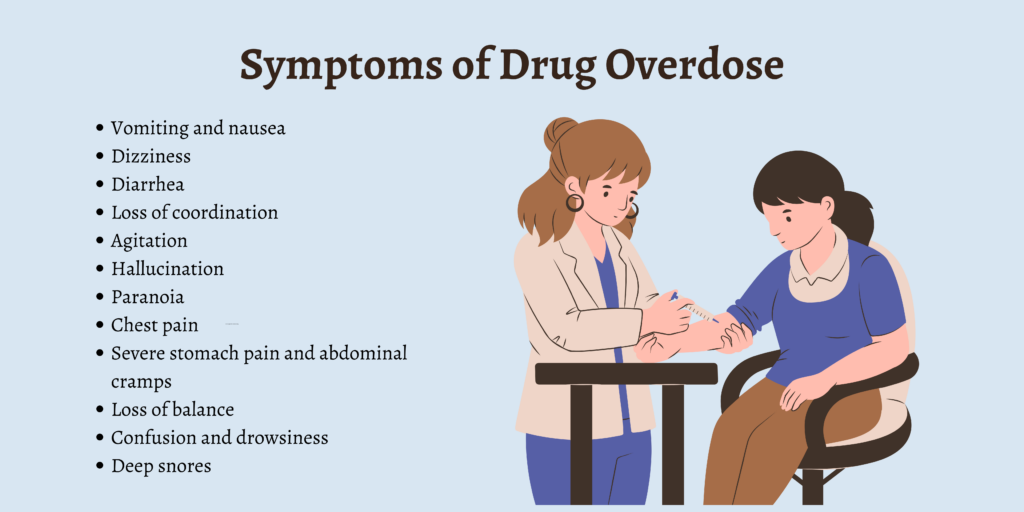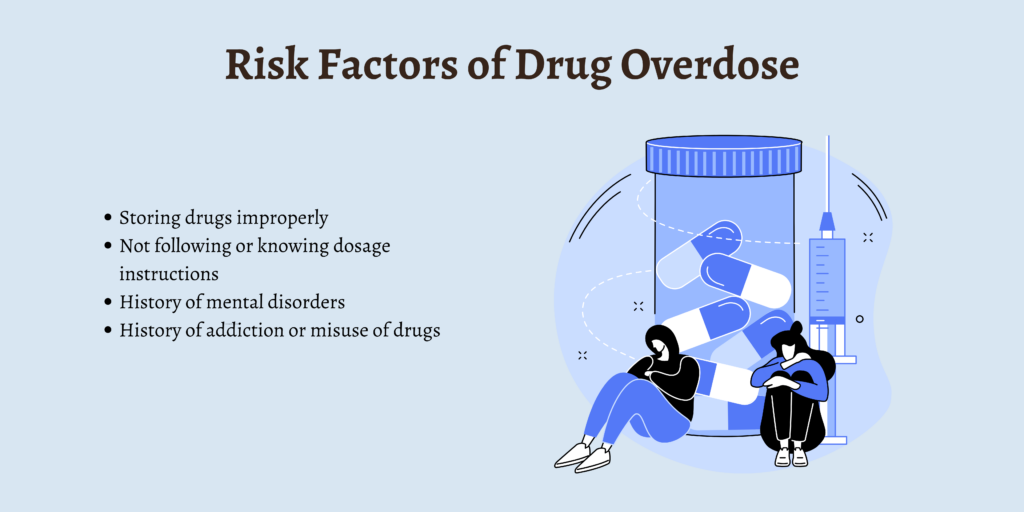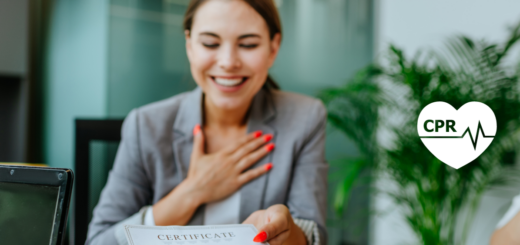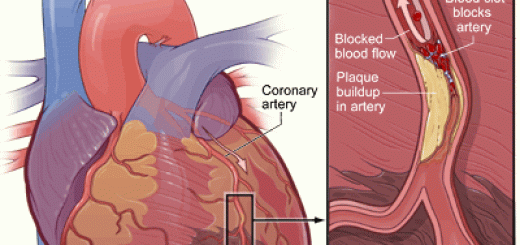First Aid for Drug Overdose: 7 Life Saving Steps to Follow
Research tells us that 106,699 people died of drug overdose in the United States in 2021, signaling an increase since 1999 by 781%. Taking a look at that concerning statistic, I believe that knowing about drug overdose enables you to prevent it and help those around you.
A drug overdose happens when a person consumes too much or toxic levels of a given substance, which could either be legal, illegal, over the counter, or prescription. These overdoses can either occur intentionally or accidentally.
When someone takes more than the recommended amount of a certain drug or consumes an amount that affects their body functions harmfully, it causes an overdose.
A drug overdose can cause some medical complications that are extremely serious, which include death. One can determine how severe a drug overdose is based on the drug, how much of the drug was taken, and the physical and medical history of the patient in question.
In this article, we will be discussing the symptoms and causes of a drug overdose, how to treat it, what its risk factors are, how to prevent it, and more.
Symptoms of Drug Overdose

The signs and symptoms of drug overdose are many, with the responses varying from one person to another. The symptoms often depend on factors such as:
- The person’s age.
- The person’s state of health.
- The way the drug was consumed.
- The strength of the consumed drug.
- The amount of drug that was taken.
- The drug or drugs that were consumed.
Some of the symptoms of drug overdose are as follows:
- Vomiting and nausea
- Dizziness
- Diarrhea
- Loss of coordination
- Agitation
- Hallucination
- Paranoia
- Chest pain
- Severe stomach pain and abdominal cramps
- Loss of balance
- Confusion and drowsiness
- Deep snores
- Visual disturbances
- Limp body
- Being awake but unresponsive
- Gurgling or choking noises
- Clammy or pale face
- Having difficulty breathing or erratic or shallow breathing
- Not breathing at all
- Loss of consciousness
- Blue lips or fingernails
- Erratic or slow pulse
- Seizures
Causes of Drug Overdose
At times, it can be difficult to determine whether an overdose was accidental or intentional. In some cases, there could be elements of both involved. Regardless of the cause of the overdose, it’s vital to treat the patient with dignity and care.
- Accidental: Accidental drug overdoses happen when a person consumes the wrong substance or a mixture of substances at the wrong time or in the wrong amount. This could happen to people who take drugs to feel a certain effect without being aware of the ingredients or the strength of the substance itself.
- Incidental: Often, a person can consume a harmful dose of a given substance or a combination of substances intentionally. This could signal internal, emotional, or physical distress, proving that the person might require additional support or care.
Risk Factors

The following are the risk factors associated with drug overdose:
- Storing drugs improperly: When drugs are not stored properly, they can easily be located by kids who are curious and often put strange and unknown things in their mouths. Therefore, if drugs aren’t stored away from kids or sealed efficiently, kids can accidentally overdose on them.
- Not following or knowing dosage instructions: If the dosage instructions aren’t followed, adults can overdose on medicines. When the medicines are taken sooner than directed or consumed more than recommended, one can accidentally overdose on them even if the medicines are otherwise safe for the person.
- History of mental disorders: Mental disorders can often pose risks for a drug overdose, including suicidal thoughts and depression. These especially serve as risk factors and trigger drug overdose if they aren’t treated properly.
- History of addiction or misuse of drugs: Intentionally consuming illicit drugs or misusing prescription drugs can make a person more susceptible to drug overdose, especially if it happens too often or if they get addicted. This risk amplifies if someone uses drugs with alcohol, mixes various drugs, or consumes multiple drugs.
First Aid for Drug Overdose
If you think someone has suffered from a drug overdose, take the following steps:
- Remain as calm as possible.
- Call 911 and explain to the operator that someone has suffered a drug overdose. Do let them know of the substance or substances they consumed if you’re aware of what they are.
- If the person is breathing but unconscious, gently place them on their side in the recovery position. Tilt their head and lift their chin to make sure their airway stays open.
- Check their breathing and monitor their condition till the emergency medical services reach the scene.
- Don’t attempt to make the person vomit.
- Don’t give them anything to drink or eat.
- If there are any pill containers that the person was using, keep them nearby to take them with you to the hospital.
The treatment methods used by healthcare providers for cases of drug overdose include:
- Clearing the person’s airway or inserting a breathing tube if they are suffering from breathing issues.
- Giving the person activated charcoal so that their digestive tract can absorb the drug.
- Getting rid of the substance or substances from the person’s stomach by inducing vomiting.
- Removing the substance that caused the overdose by pumping their stomach.
- Speeding up the removal of the substance from the person’s body by giving them intravenous fluids.
Prevention of Drug Overdose
Listed below are some of the ways in which you can prevent a drug overdose:
- Practice safety when it comes to taking medicines. Always read the labels carefully and consume prescription medications as directed by your doctor.
- Inform your doctor or any other health professional of any drug overdoses you may have suffered in the past.
- If you have any medicines you no longer require, don’t keep them with yourself, and instead give them back to the pharmacist.
- Keep all sorts of medicines, poisons, drugs, and alcohol safely tucked away and in a place where children can’t reach them.
- If you’re consuming various substances at the same time, be very careful as they can interact negatively, thereby increasing the chances of a drug overdose. Discuss with your doctor in case there are any interactions you should be cautious of.
FAQs
What are the harmful effects of drug toxicity?
Some of the harmful effects of drug toxicity include nausea, dizziness, diarrhea, weakness, vomiting, and stomach pain.
What is the best thing to do if someone suffers a drug overdose?
Some of the things to do if a person suffers a drug overdose are looking for the signs and symptoms, calling 911, giving rescue breaths, and staying with the person till the arrival of medical help.
Should I go to the hospital if I took too many pills?
Consuming too many pills can cause drug overdose, and you should seek emergency medical care immediately if you experience signs of a drug overdose.
How many pills are too many?
The appropriate number of pills one should take depends on the medication one is consuming and also on the person. The factors can vary based on age, body type, and gender.
Conclusion
Any individual who consumes too much of a medicine or substance can experience a drug overdose. Opioid medications are the leading causes of this condition today, with some of the other reasons being alcohol, stimulants, and benzodiazepines.
In order to treat this reaction efficiently, it’s vital to recognize the related signs and symptoms. One can prevent overdose by following the instructions provided by their doctor regarding all types of prescription medications and how to consume them.
If someone suffers from a substance use disorder, make sure they seek adequate support instantly. By following the right prevention strategies and care methods, it is possible to prevent a drug overdose or treat them well.





